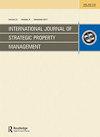世界遗产指定与财产:保护对历史资产价格的影响
IF 2
4区 管理学
Q3 MANAGEMENT
International Journal of Strategic Property Management
Pub Date : 2022-12-12
DOI:10.3846/ijspm.2022.18156
引用次数: 0
摘要
历史文物保护条例的限制和要求使财产所有人的权利发生了许多变化。它们可能会带来额外的成本,最明显的是禁止拆除指定的建筑物,从而减少房地产开发的机会。本研究的目的是考察被指定为世界遗产后会发生什么;具体来说,这些指定是否以及如何影响历史建筑的财产价值。使用享乐价格法,我们衡量了指定建筑物所有者被剥夺的拆除和重建选择权的价值。此外,还以指定建筑物内公寓的价格为标准,衡量了保护规定的价值。研究区域是特拉维夫的“白城”,被联合国教科文组织指定为世界遗产。研究结果显示,如果指定建筑物不受历史文物保护条例的约束,其市场价格平均比理论价值低12.5%。此外,在指定建筑物中,如果进行保护,公寓的价格会上涨14%左右。这些发现可能对旨在促进世界遗产地历史建筑保护的公共政策产生直接影响。本文章由计算机程序翻译,如有差异,请以英文原文为准。
WORLD HERITAGE DESIGNATION AND PROPERTY: THE IMPACT OF PRESERVATION ON THE PRICE OF HISTORIC ASSETS
The restrictions and requirements imposed by historic preservation regulations bring about many changes to the rights of property owners. They might impose additional costs, most notably by prohibiting the demolition of designated buildings and thus decreasing property-development opportunities. The objective of this study is to examine what happens following world heritage designations; specifically, if and how such designations impact the property values of historic buildings. Using the hedonic price method, we measure the value of the option to demolish and rebuild that is denied to owners of designated buildings. We also measure the value of preservation regulations, expressed in the prices of apartments in designated buildings. The study area is the “White City” of Tel Aviv, which UNESCO designated as a world heritage site. The findings suggest that the market price of a designated building is on average 12.5% lower than its theoretical value if the building was not subject to historic preservation regulations. Moreover, a premium of approximately 14% was found in the price of apartment units in designated buildings if the building underwent preservation. These findings could have a direct impact on public policies designed to promote the preservation of historical buildings in world heritage sites.
求助全文
通过发布文献求助,成功后即可免费获取论文全文。
去求助
来源期刊
CiteScore
4.00
自引率
18.50%
发文量
23
审稿时长
15 weeks
期刊介绍:
International Journal of Strategic Property Management is a peer-reviewed, interdisciplinary journal which publishes original research papers. The journal provides a forum for discussion and debate relating to all areas of strategic property management. Topics include, but are not limited to, the following: asset management, facilities management, property policy, budgeting and financial controls, enhancing residential property value, marketing and leasing, risk management, real estate valuation and investment, innovations in residential management, housing finance, sustainability and housing development, applications, etc.

 求助内容:
求助内容: 应助结果提醒方式:
应助结果提醒方式:


